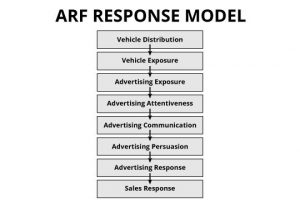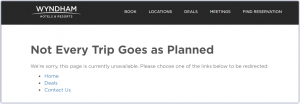Misleading Searches Derail Purchases, Privacy And Keyword Use Are Key
by Laurie Sullivan , Staff Writer @lauriesullivan, May 11, 2017
Search on a keyword and click through to a Web site or a retail product page only to find the content lacks the information. The misleading search results makes 31% of American consumers less likely to buy from that particular Web site.
Another 31% admit they would worry that the retailer might be a scam, and 27% said a misleading search result would push them back to a more familiar Web site, according to data released Thursday from SearchDex, an ecommerce technology and consulting agency.
The SearchDex 2017 Google Game Survey, fielded to more than 1,000 American adults, analyzes the behavior or American adults around online searching, shopping and browsing privately between April 23 and April 28.
How people search also varies, with 41% using a string of keywords; 31% using full-sentence questions, and 20% using category searches.
Some 76% of Americans believe they have searching down, but only 13% use quotation marks when searching on Google, and even fewer — at 5% — use a Boolean search.
About 68% of Americans participating in the survey admit to being annoyed by some aspect of online searching, with 39% citing targeted ads; 21%, outdated search results; 18%, desired results not on the first page; 17%, slow load times; 12% description of search results unclear; and 10%, key search term labeled as missing.
Privacy also remains a concern for many who search for information online, but not as many as some might think. When it comes to using a search engine to access their bank information, only 21% of people use an incognito browser window to access their account.
About 14% use an incognito browser window to research and buy gifts; 13% use one to watch embarrassing movies and television shows; 12% to download confidential work documents; and 11% to check social media accounts.
Some 68% of Americans revealed they have concerns about their browser history being sold to big companies, with 44% thinking it would cause an increase in ads; 43% worried that data could fall into the wrong hands; and 40% concerned that a security breach could cause their browser history to be exposed.
Researching products and services on a search engine before making a purchase remains a top practice, according to 58% of those participating in the survey. Some 27% use a search engine to read product reviews to make a decision; 26% look for other online retail options; 25, compare prices; 19%, find physical retail store locations; and 15% search on an engine for coupon codes before making a purchase.
Still, 32% said their online shopping behavior still begins with a search on an engine like Google and Bing, followed by 20% on an online-only retailer’s Web site, 18% on a retail store Web site, and 15% on a brand’s Web site.
MediaPost.com: Search Marketing Daily
(23)
Report Post






